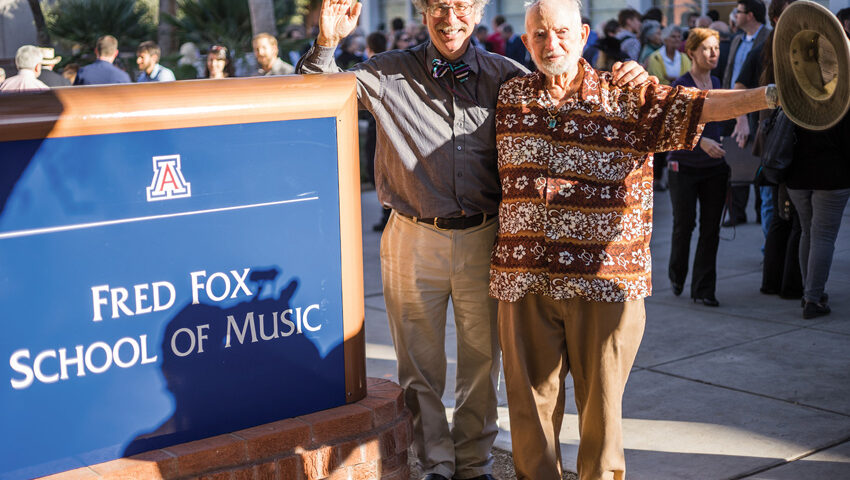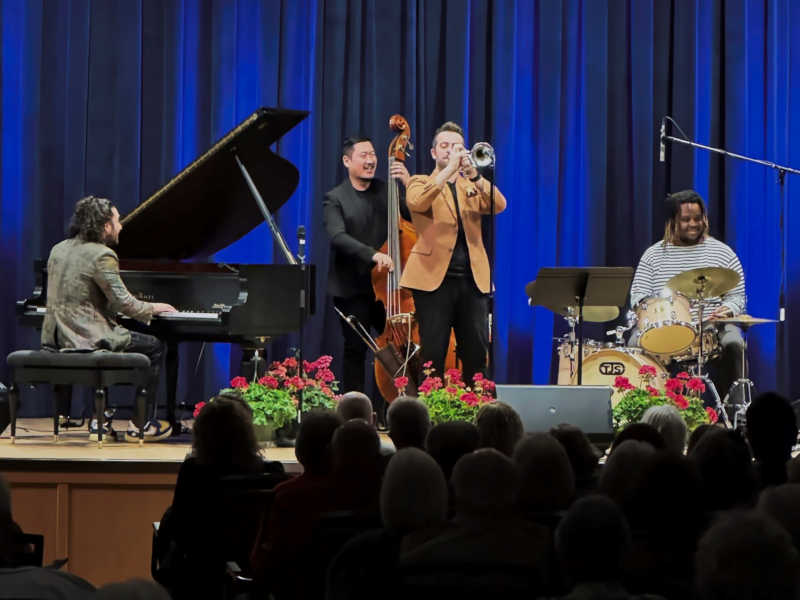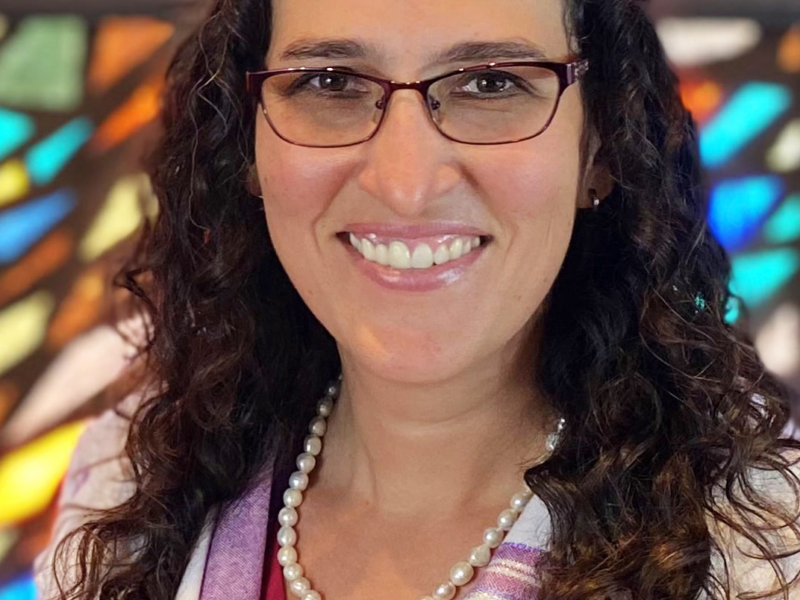Family donates $20 million to name school for centenarian music lover
Alan and Daveen Fox wanted to give Alan’s father, Fred Fox, a unique gift for his 100th birthday. They wanted to honor him in a very significant way, because he is so special to them and to many others. When they sat down with Ed Reid, who was recently named the new director of the University of Arizona School of Music, they hadn’t quite decided what they were going to do. Alan firmly believes his father “is the greatest guy in the world,” and wanted to give him a gift that would exemplify his feelings. They knew that Fred has a soft spot in his heart for the school, having taught one of its star professors, Danny Katzen, and having anonymously sponsored woodwind quintets at the school for several years.
After rejecting Ed’s first few suggestions of what most would consider to be sizeable gifts, they agreed on the perfect idea. For a multiyear donation totaling $20 million, the U of A School of Music would be renamed the Fred Fox School of Music. It was a marvelous win-win. The Fox donation will endow three chairs for professors in perpetuity and provide myriad opportunities for students through both endowed scholarships and a general fund. The school’s name was officially changed in mid-February with Fred, Alan and Daveen in attendance at several celebrations. A master teacher and legendary horn performer, Fred is still actively teaching at 100 and taught a master class while there.
Danny, a French horn teacher and player as well as the associate professor of horn at the U of A, has known Fred for 40 years.
“I had seven horn teachers,” Danny explains. “Fred was the seventh. He made all the difference in getting me to the next level. He had a way of putting concepts into words that would motivate and enable you to do things you didn’t think possible.”
Danny wanted his students to be able to benefit from Fred’s wisdom and techniques as well, and invited him to teach a variety of master classes for the horn students. The Fox family lives in southern California, but Fred has come to the U of A numerous times to teach and to visit Danny.
“He’s really something,” Danny says admiringly. “He has often left LA at 4 am, taught several master classes here and returned home at 2 am – and he doesn’t charge us a penny.”
Danny has been at the U of A since 2008, but he has fond memories of an earlier Arizona connection going back to a stint from 1976-78 when he had his first American professional gig with the Phoenix Symphony and tutored bar mitzvah students at Beth El Congregation. In 1979 he became second horn in the Boston Symphony Orchestra and played there for 29 years before arriving at the U of A. He also taught horn at Boston University, the New England Conservatory and CalArts. He can be heard on nearly all the recordings of the BSO and with the Boston Pops from 1979-2000; he also played on film scores such as “Schindler’s List,” “E.T.,” “Saving Private Ryan” and “Jumanji.”
Prior to his Phoenix Symphony position, Danny had his first “real job” as a musician in Israel. At age 21, he accompanied his brother to Haifa as a volunteer. The second horn player in a Chamber Music group had been called to war, and Danny was able to step into his place. He even considered making aliyah (his brother actually did), but that didn’t come to be.
The Fred Fox School of Music includes nationally and internationally recognized faculty who spend much time with one-on-one teaching and mentoring. More than 500 undergraduate and graduate students are currently enrolled in the school, which is more than 100 years old. The proud “all Steinway” school includes two principal concert halls and boasts that many of its students audition successfully for the Tucson Symphony Orchestra, the Arizona Opera Company and other community ensembles. Graduates have gone on to careers throughout the world as K-12 educators, professors, recording artists, chamber and orchestral musicians, composers, arrangers and music industry professionals.
Danny loves teaching music to young people. He reasons, “Even if you don’t make it as a pro, you’ve learned multitasking, cooperation, discipline, time management, love of music and so much more.”





